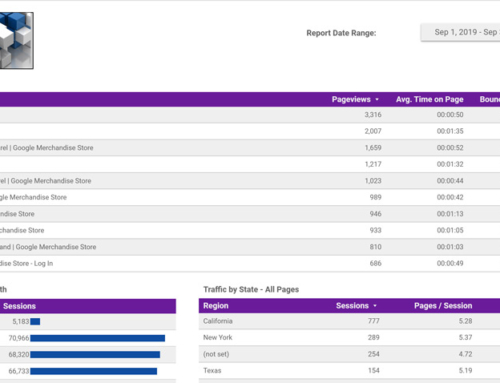As a marketing agency that is also a web design company, we’re often asked the difference between a web designer and a web developer. Good question. These terms are often used interchangeably, which can be detrimental to the end client. Let’s explore the differences between a web designer and a web developer, and review some key questions to help you determine which professional you need.
Web Designer
 A web designer primarily focuses on the aesthetics of the website using graphics design software such as Adobe Illustrator or Photoshop to design the layout and style of a website much the same way as a print media designer. Unlike a print designer who works with static designs, a web designer has to take into account that the design may contain animations, audio players, dynamic content and will most likely be viewed on desktop computers, tablets and mobile phones in both landscape and portrait orientations. The web design must address all of these viewing devices properly and that can be a challenge for some web designers who have traditionally specialized in print medium with its set way of displaying the information. Digital mediums allow for more viewing options and, thus, require more design elements coming together.
A web designer primarily focuses on the aesthetics of the website using graphics design software such as Adobe Illustrator or Photoshop to design the layout and style of a website much the same way as a print media designer. Unlike a print designer who works with static designs, a web designer has to take into account that the design may contain animations, audio players, dynamic content and will most likely be viewed on desktop computers, tablets and mobile phones in both landscape and portrait orientations. The web design must address all of these viewing devices properly and that can be a challenge for some web designers who have traditionally specialized in print medium with its set way of displaying the information. Digital mediums allow for more viewing options and, thus, require more design elements coming together.
Designing a website may also require designing the user interface (UI) and user experience (UX). Both UI and UX are somewhat fuzzy terms that are in a state of constant transformation. User Interface design is typically focused on the way a visitor interacts with the different components of a website such as navigation, buttons, links and branding elements. User Experience design is more concerned with how a user interacts with the website as a whole. Think of how site visitors are pulled into the site, what they’re encouraged to play or do, where the visitor goes next and in general how they play/work with the site.
Web Developer
 A web developer is responsible for converting the website design into a functional website through programming using a variety of tools such as Adobe Dreamweaver and Microsoft Visual Studio. Web developers must be knowledgeable of various programming and scripting languages such as HTML, JavaScript, PHP and ASP. Web developers also tend to get more into the content management systems that have grown in popularity. Again, this gets into how the sites work and engage with site visitors.
A web developer is responsible for converting the website design into a functional website through programming using a variety of tools such as Adobe Dreamweaver and Microsoft Visual Studio. Web developers must be knowledgeable of various programming and scripting languages such as HTML, JavaScript, PHP and ASP. Web developers also tend to get more into the content management systems that have grown in popularity. Again, this gets into how the sites work and engage with site visitors.
Also, web developers can be categorized as “front-end developers” and “back-end developers.” A front-end developer typically is responsible for building the “front-end” of the website as provided by the web designer, meaning the web developer constructs the visible part of the website that the web designer drew. Back-end developers are responsible for behind-the-scenes programming such as storing and retrieving information from a database. For websites that require online ordering, payment processing or members-only areas (to name just a few options), the back-end developer plays a critical part.
Fuzzy Logic
The lines between designer and developer can be blurred depending on the size and complexity of the website and functionality required among other factors. As more print designers have transitioned to digital media design, the tools have evolved that allow designers to also handle front-end development to deliver interactive websites without having to involve a back-end developer. With the rapid growth of the mobile device market and availability of new programming tools, website developers are stepping up to the challenge of developing applications (aka “apps”) that can take interaction with customers or followers much further. Regardless, we believe it’s valuable to have team members who understand the web design process as well as the actual web development. In fact, we believe real strength comes when your web team can both create beautiful-looking websites (web designers) and write the code that enables them to work well with your target audiences (web developers). Many times, the question isn’t whether you need a web designer or a web developer, but rather how can a marketing agency with a hybrid of these skills provide you with a powerful, smart-looking website.
Questions to Answer When Considering Your Website Needs:
- Do you already have a graphic designer or web designer who can create the look and feel of your website? Or are you looking for someone to produce the look of the site as well as build it?
- Will your website need to process anything online —from event tickets, membership applications and product purchases added to a shopping cart to online directories and password-protected content areas?
- Do you need someone who can troubleshoot how your website performs down the road (for instance as new WordPress updates become available) or does your site really just need to be an online portfolio of your work?
- Do you already have a website but want to add deeper functionality to showcase a new product in a variety of colors, sizes or other options? A web developer would likely be a better fit in this scenario.







